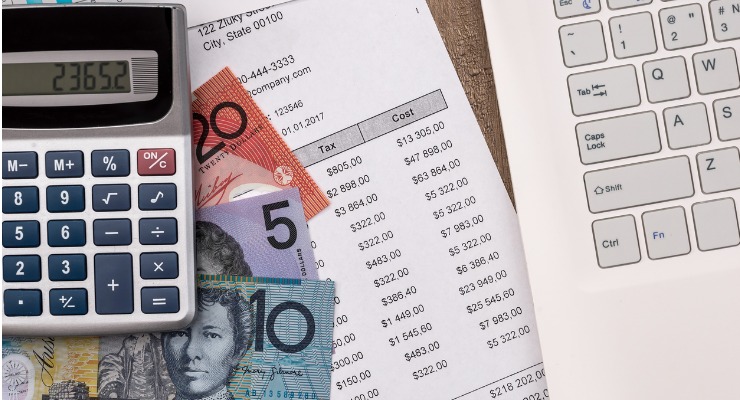
Using a freight forwarding service to import goods can be expensive. With costs increasing for freight and customs duty, as well as the increase of taxes such as the goods and services tax (GST), you wouldn't be alone in wanting to reduce the cost of importing cargo. The good news is that you can curb some of the upfront costs thanks to the deferred goods and services tax (DGST) scheme introduced by the Australian Tax Office (ATO). So, if you're eligible, you can defer GST on the imports of home consumables, which can help to balance the books. There are strict entry and compliance requirements, but if you can keep on top of them, the DGST scheme can help with cash flow.
What Does GST Deferral Mean?
A Goods and Services Tax (GST) of 10% is payable on most goods imported into Australia. Whether the individual or organisation importing the goods is registered for GST or not, the tax is payable at the time the goods are collected. However, companies that have registered for GST (and are importing goods for the purpose of running their business activity) can apply for a GST credit on their cargo as part of the DGST scheme.
Individuals and organisations can apply for the scheme by completing an application on the Australian Taxation Office (ATO) website. After approval to join the deferral scheme has been received, those who import goods for ‘home consumption’ can quote their Australian Business Number (ABN) to Customs for a deferred GST payment. The term ‘home consumption’ means the imported cargo must enter through Customs and into Australia. Goods that are imported temporarily under the Customs Act are excluded.
Upon approval for entry into the deferral scheme, the importer will pay customs duty and any other relevant charges on the release of the cargo. Customs will keep records of all GST on imports into Australia, as well as deferred GST liabilities. At the end of each month, Customs will notify the ATO of the total deferred GST liability for each importer.
Can GST Be Deferred on Selected Cargo?
The Australian Border Force states that you are not able to defer GST payments on specific import declarations. This means that, upon being approved to defer your upfront GST cost, the GST is deferred on all lines of entry and on each import declaration.
Business Activity Statements (BAS)
Once the ATO has been notified of the total deferred GST liability for each importer, it will include this information on a document called the Business Activity Statement (BAS) before it is released to the importing individual or organisation. An entity's BAS helps with reporting to the ATO and paying GST, as well as any other relevant taxes. The ATO automatically sends a BAS to entities that have registered for an ABN and GST when it's time to lodge.
Lodging Your BAS on Time Through the ATO
There are three options available when it comes to lodging and paying a Business Activity Statement (BAS). This is largely dependent on GST turnover. For example, if your GST turnover is $20 million or more, you will need to lodge and pay your BAS monthly. If this is the case, the importer will need to lodge and pay on the 21st day of each month after the end of the taxable period. Importers must use one of the ATO's electronic systems to lodge their activity statement online, though registered tax or BAS agents can assist with this. Importers who use a customs broker can request a copy of their GST Deferral Report by asking their broker/s.
Which Government Department is Responsible for the DGST Scheme?
GST Deferral work is operated and overseen by the ATO, and is assisted by the Department of Home Affairs (Customs). The ATO provides a platform that allows GST to be deferred on imported cargo, though the customs duty cannot be deferred and must be paid in order for the shipment to be collected.
What Types of Imported Goods are Included?
Not all cargo being imported into Australia during the trade process is covered by the GST deferral scheme. Deferred GST does not apply for shipments that include:
- Goods imported under the TRADEX scheme.
- Low-value imports cleared on informal clearance documents.
- Goods imported temporarily under Customs Act s162 or s162A.
Both the Wine Equalisation Tax and Luxury Car Tax are also not included in the scheme.
What Can Make an Importer Ineligible for the Deferral Scheme?
The ATO may stop an importer from benefiting from deferred GST due to:
- Obligations to the ATO not being paid by the due date.
- Business Activity Statements aren't lodged by the due date.
- An individual or company is subject to administrative penalties under any Act administered by the Commission.
In the event that an importer is declared ineligible to have their GST deferred, Customs will refrain from releasing any goods until the GST is paid. The importer can then register for the deferral scheme again. This can be done by filling out a request to rejoin. If the admission rules are satisfied, the importer may obtain a bank guarantee for any future liability of GST on imported goods.
Deferred GST in Relation to Importers' Eligibility
Importers aren’t automatically eligible to participate in the deferred GST scheme. An application may not be approved if, in the past three years, the individual or business owner has been convicted or penalised by a court for any offence related to fair trading, customs, taxation, inaccurate description of goods, trade practices or fraud.
As with anything tax-related, we recommend getting specific advice for your organisation from an accountant who specialises in this field. You can also call the Deferred GST Scheme Hotline on 1300 130 915.
Need help sourcing and importing products from China? Call Vara Allied on (08) 6115 0118, or contact us online.